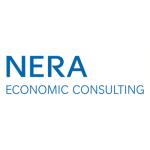Many questions have been asked about the practical aspects of adjusting transfer prices since NERA Economic Consulting’s recent ITR article on the implications of the COVID-19 pandemic on the international tax landscape. In order to further the debate, a real-life case study is presented that shows how the effects of the economic crisis can be at least somewhat alleviated by transfer pricing (TP).
The client is a group active in the machinery goods industry with a fairly technical product portfolio and a global operational footprint. The market uncertainties associated with the pandemic have led to an all but complete drop in demand for the invest-type goods of this company. Within about one week, orders ceased and even some existing contracts were put on hold. It is already clear that the fixed-costs nature of its manufacturing operations will drive the group into a loss-making position in 2020.
This prompted the client to review its TP policy, both to make sure that the group remains tax compliant during the COVID-19 crisis, and to ensure that no unnecessarily large tax payments would further burden the cashflow, in particular due to the various ‘routine’ limited risk entities that were normally set to earn certain profits irrespective of the group’s consolidated loss situation.
The client’s TP system is centred on a German principal company that conducts most of the group’s research and development activities, but also includes various regional hubs that house manufacturing activities for their respective markets. From a TP perspective, the manufacturing hubs are set up as routine, limited risk companies that earn fixed mark-ups that are typically benchmarked every year. Meanwhile, the German principal company earns any residual above and beyond what is used to remunerate the other entities.
As the company is suffering severe losses due to COVID-19, this setup would lead to a situation in which the company still pays taxes in the various other jurisdictions, while immense loss-carry forwards are built up in Germany. This puts a further strain on the already exposed cash position of the group. As major restructuring costs are expected in Germany, the strained cash situation could last several years, generating an existential risk for the group.
In this context, the client was advised on an approach that would adapt its TP to the circumstances. In this case, the manufacturing hubs are clearly routine companies and their remuneration should be determined by benchmarking comparable independent companies. While such benchmarking would normally identify a positive operating margin, it is to be expected that during the crisis, these independent comparable companies would likewise suffer losses, given the existing market environment. Thus, in principle, a loss position might be justifiable for the manufacturing entities.
However, actual benchmarking data from comparable independent companies for 2020 will only be in the public domain by 2022, at the earliest, and the client would need to identify a precise target margin for 2020 as soon as possible. In order to bridge this gap, the team at NERA Economic Consulting performed an adjustment calculation that goes beyond the normal benchmarking analysis.
Specifically, the results of the previously identified comparable companies over the past six years were analysed and a regression analysis identifying the cost structure (fixed costs and marginal costs) of comparable companies was conducted. It was found that the taxpayer expects a sales reduction of approximately 40%, of which 10% reflect price reduction and 30% are a reduction in sold amounts.
These results are used to determine expected loss margins for the client’s manufacturing hubs in view of its specific cost-structure and the regression results for the comparables. It can also determine what would be an arm’s-length loss situation, if the expected negative business shock for the tested party had an impact on the comparables as well.
Yves Hervé
T: +49 69 710 447 502,
Philip de Homont
T: +49 69 710 447 508













